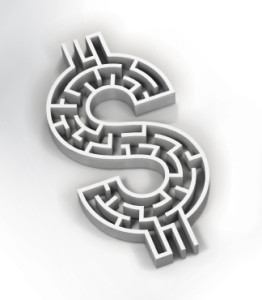 In case you haven’t noticed, efforts to teach financial literacy in schools and elsewhere are a pretty big failure.
In case you haven’t noticed, efforts to teach financial literacy in schools and elsewhere are a pretty big failure.
As a nation we’re not getting much better at managing our money. Efforts to change that by teaching money skills in schools haven’t done much to improve the situation. Follow-up studies on people who took financial literacy courses in school typically show the education has little effect. So the debate rages on about whether we should still try.
You won’t be surprised, given what I do, that I think it’s essential people educate themselves and their kids about money. So I’m looking forward to tomorrow’s Google Hangout with CFP Neal Frankle, who runs the Wealth Pilgrim site, where we’ll talk about financial literacy, including ways to get it and give it. The event is sponsored by Bankrate and AOL DailyFinance.
If you’d like to join us, our chat will stream live starting at 2 p.m. Eastern, 11 a.m. Pacific. Hope to see you there!
Update: If you missed the event, the link to our conversation can be found here, on the DailyFinance site.